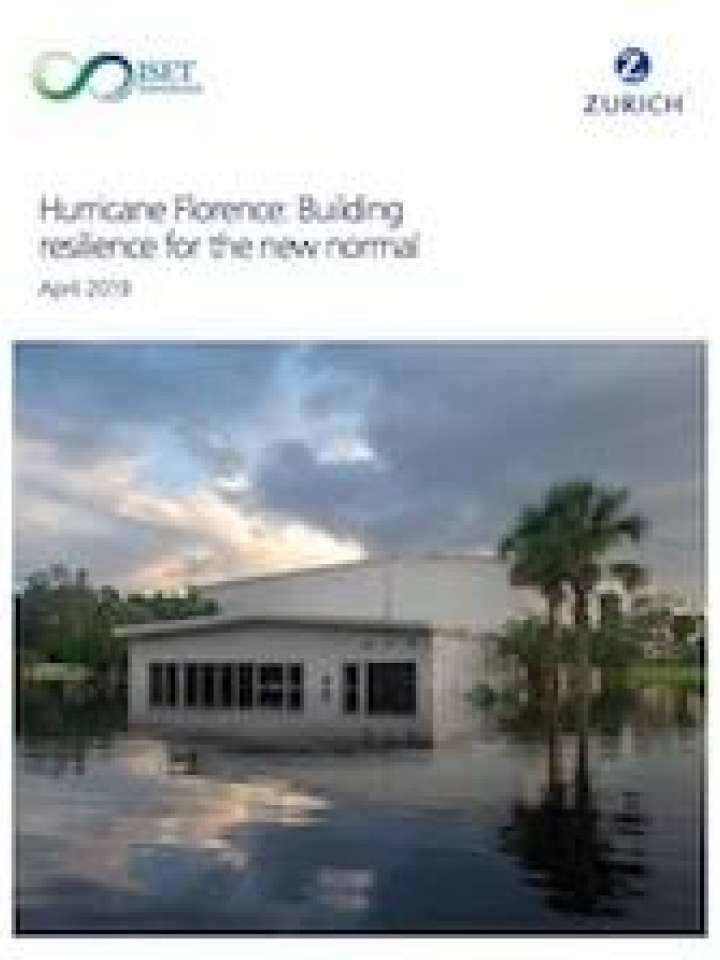Hurricane Florence: Building resilience for the new normal
This study, written collaboratively by Zurich North America, the Zurich Flood Resilience Alliance, and ISET-International, looks in detail at the 2018 floods and their consequences that resulted from Hurricane Florence in North Carolina. Based on interviews with impacted households and businesses, and with people involved in risk reduction, response and recovery at the city, county and state level, as well as researchers and those within the nonprofit sector, the study identifies lessons learned from Florence and provides tangible recommendations for enhancing flood resilience. Practitioners can apply these lessons to communities around the world that are exposed to flood risk.
Key takeaways from this study include:
- Weather events are changing in nature as climate has visibly changed and sea levels have visibility risen.
- Economic motivators can be used as levers for both action and inaction.
- Floods contribute to marginalizing vulnerable communities.
- Now is the time to act on building in community-level resilience.
- Critically assess where all stakeholders chose to build.
- Insurance plays an important role in resilience.
Hurricane Florence points to an increasingly clear trend that disaster impacts are getting worse. But the recovery period is a key window of opportunity to take action and reduce risk.
Explore further
